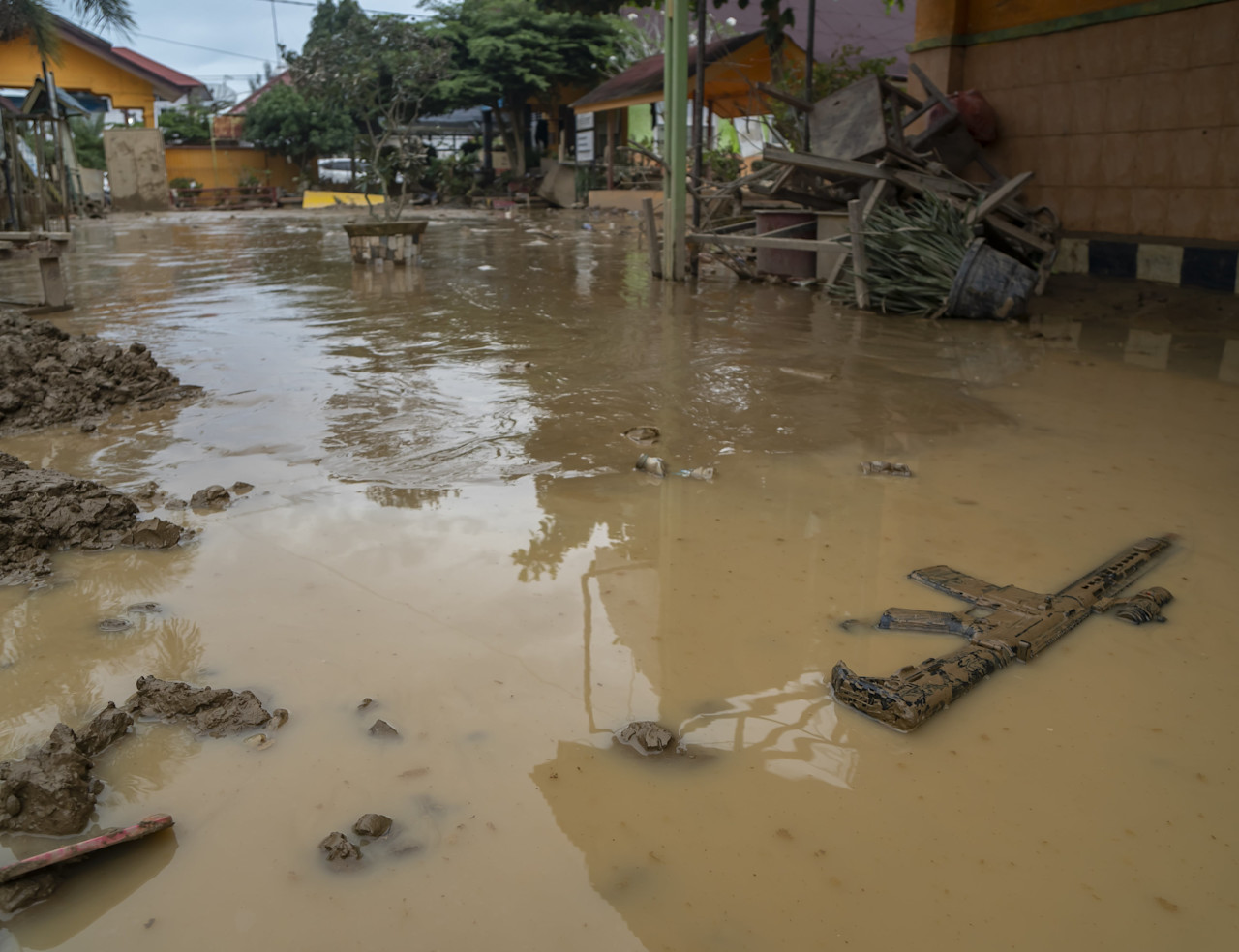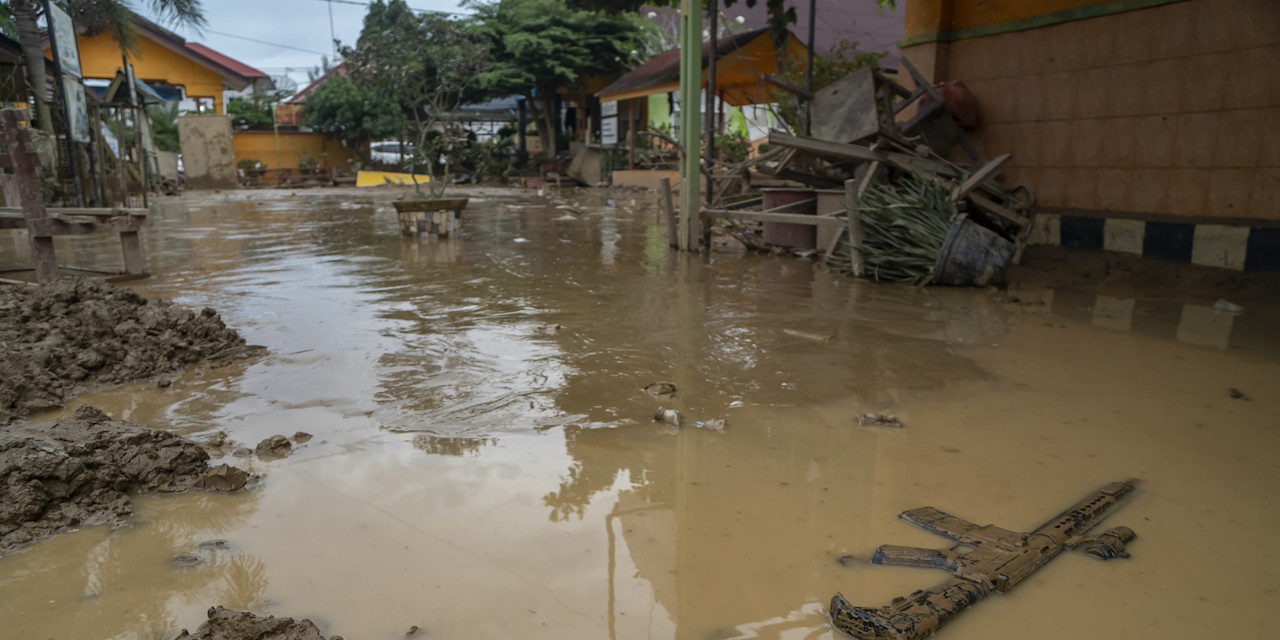

The CO₂lumnist: Should derivatives have a carbon footprint?
Investors rely on data to make decisions on climate strategy, but who should be responsible for emissions – the creator or the user? In the fourth of a new series of columns taking a more light-hearted look at the issue, Robeco data scientist Thijs Markwat asks whether derivatives have more to answer for than you may think.
In this memo I discuss a topic which I have been heavily struggling with for a while. It is about whether we should attach a carbon footprint to financial derivatives. Several earlier attempts to get insight in the matter have failed. Also asking Google has not been very helpful. Below I share my thoughts on the matter.
Consider someone named Daniel, who decides to invest in a local farm. The investment is for one year, and after that year Daniel gets his investment back. Given the plans of the farm, Daniel expects to earn a nice positive return, but he knows the return can become negative in case of adverse events. Given the capital structure of the farm, we can calculate that Daniel ‘owns’ 1% of it. In such a situation we would also say that Daniel is responsible for 1% of the greenhouse gas emissions (mostly methane from the cows).
Half a year later, Daniel finds out that his dreamhouse is for sale. Transfer of ownership should take place in half a year, which is around the time the loan for the farm is due. At first, Daniel is incredibly happy, but soon the realization kicks in that he will not have enough money if the investment outcome is disappointing. As the house is really a once-in-a-lifetime opportunity, he desperately decides to look for a solution.
He starts with the most obvious option and asks the farm whether he could already receive his investment back. The farm replies that they used his investment to increase livestock, and that they are not willing to sell any cows at the moment. Therefore, he starts thinking of other ways to fulfil his dream. After drinking many cups of (virtual) coffee with colleagues, he finds someone named Carola able to help him realize his dream. They agree that Carola will get all the profits from Daniel’s investment. Thus, in a good year for the farm, Carola will get all the profits, but in a bad year she needs to make up for the losses.
After formalizing their financial agreement Daniel claims that Carola is now responsible for the greenhouse gas emissions. Daniel states that with transferring the economic exposure of the farm’s business activities to Carola, she is also responsible for the emissions. Carola, on the other hand, is convinced that Daniel remains responsible for 1% of the greenhouse gas emissions, since he has still invested exactly the same amount as before, while she has not invested anything at all. I agree with Carola and let me explain why.
Who ‘owns’ the company
I believe what ultimately matters for carbon accounting is who ‘owns’ a company. All the owners of a company together provide the capital that enables its economic activities and emissions. Suppose, for instance, that Daniel would not have invested at all; then the farm would have less capital, could buy less cows, and hence would have lower emissions. The farm’s emissions are thus directly related to the capital.
On the other hand, transferring the economic exposure from Daniel to Carola has no impact on the financial capital structure of the farm, nor on the amount of cows, and therefore the emissions stay exactly the same. Thus, for the footprint of the farm, it is totally irrelevant whether Daniel or Carola carries the risk. As the emissions are directly related to the total amount of capital, but it is irrelevant who carries the economic exposure, it perfectly makes sense to also attribute footprint based on ownership and not on economic exposure. Therefore, Daniel should remain responsible for the emissions.
I guess you have already noticed that Daniel has hedged his risk using a short position in a forward.1 Consequently, Carola has a long position in the same forward. My story above actually implies that financial derivatives should not have any carbon footprint, as holders of derivatives do not ‘own’ a company.
Danger of greenwashing
Not assigning footprints to derivatives could lead to greenwashing. For instance, the economic exposure of an oil and gas company stock can easily be replicated by a cash position plus a futures position.2 Holding the stock would then result in a high carbon footprint from an energy company, while the replication would result in a low footprint from the cash deposited at a financial company.
Conversely, assigning footprints to derivatives could also enable greenwashing opportunities. Given the large differences in carbon footprint of some large oil giants, almost market neutral long-short futures positions with a large negative carbon exposure can easily be constructed.3
Thus, from a fundamental perspective, derivatives should not have a footprint. However, clear legislation and guidance should be developed on the use of derivatives for green labels to avoid greenwashing.
了解最新的可持續性市場觀點
訂閱我們的電子報,探索塑造可持續投資的趨勢。
Important information
The contents of this document have not been reviewed by the Securities and Futures Commission ("SFC") in Hong Kong. If you are in any doubt about any of the contents of this document, you should obtain independent professional advice. This document has been distributed by Robeco Hong Kong Limited (‘Robeco’). Robeco is regulated by the SFC in Hong Kong. This document has been prepared on a confidential basis solely for the recipient and is for information purposes only. Any reproduction or distribution of this documentation, in whole or in part, or the disclosure of its contents, without the prior written consent of Robeco, is prohibited. By accepting this documentation, the recipient agrees to the foregoing This document is intended to provide the reader with information on Robeco’s specific capabilities, but does not constitute a recommendation to buy or sell certain securities or investment products. Investment decisions should only be based on the relevant prospectus and on thorough financial, fiscal and legal advice. Please refer to the relevant offering documents for details including the risk factors before making any investment decisions. The contents of this document are based upon sources of information believed to be reliable. This document is not intended for distribution to or use by any person or entity in any jurisdiction or country where such distribution or use would be contrary to local law or regulation. Investment Involves risks. Historical returns are provided for illustrative purposes only and do not necessarily reflect Robeco’s expectations for the future. The value of your investments may fluctuate. Past performance is no indication of current or future performance.





















